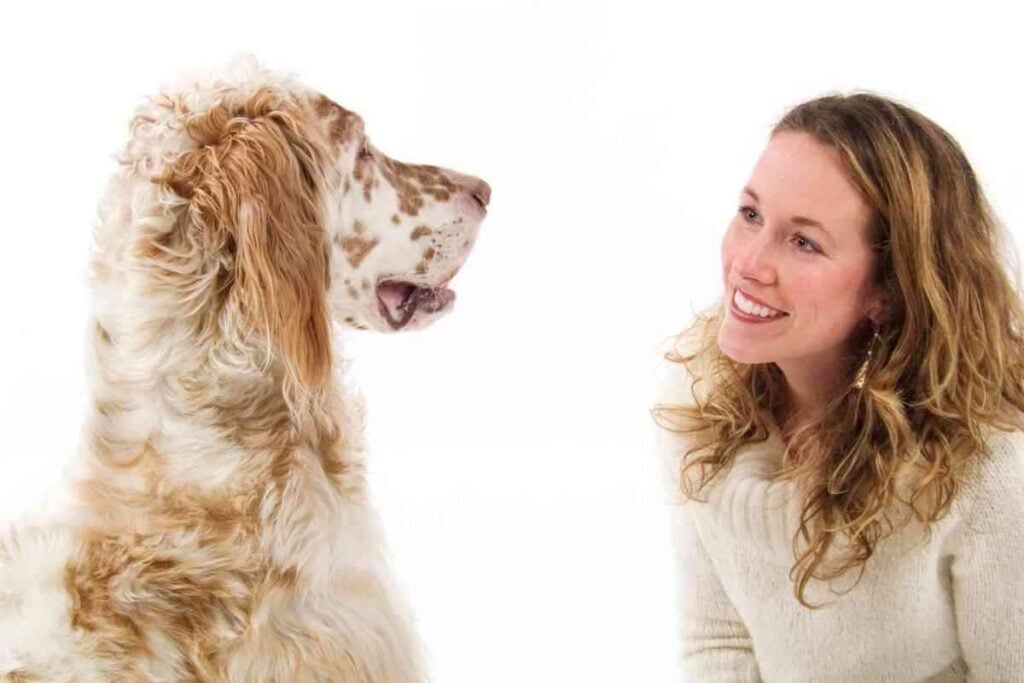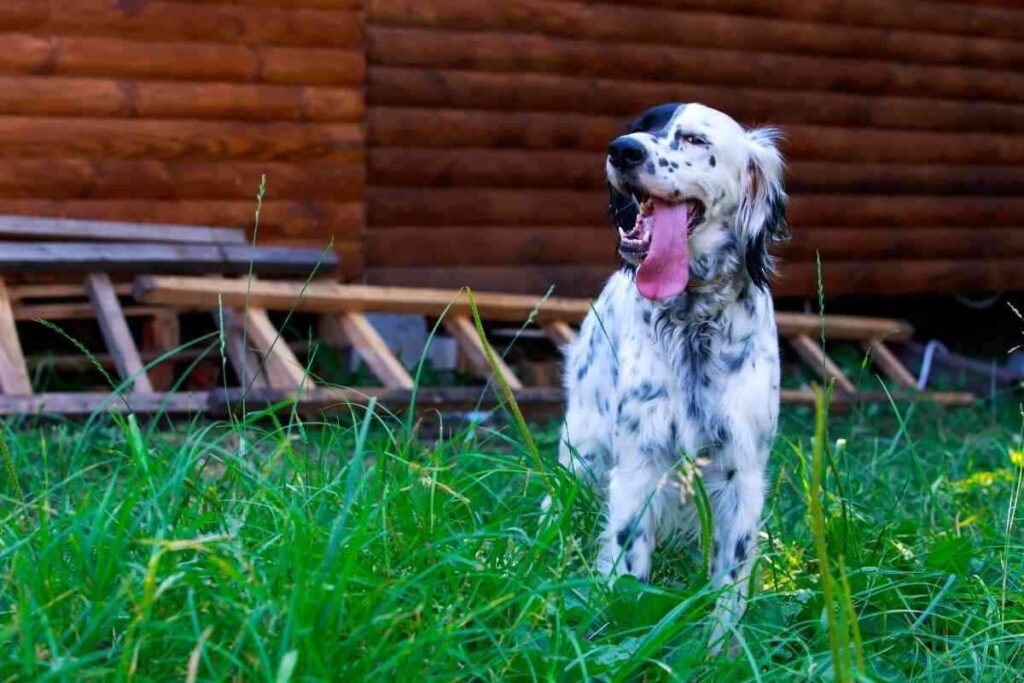Are English Setters Affectionate? Answered!
Everyone loves affection, even an English Setter, and everyone also has a different way of expressing that love and affection. While most English Setters are affectionate, some may not be at all or all the time. Accepting the English Setter as they are and creating a loving home life is often all that’s needed to bring out that love bug!

Are English Setters Affectionate?
Yes, English Setters are affectionate with those they love, affectionate with their loving family members, and form a close bond with those. Not every English Setter will be as affectionate as others, which is a trait related to who they are as a dog.
Breeding can play a role in how affectionate a dog is throughout their life, but it can also be a learned behavior. Some dogs, including those bred for companionship, may find it easier to be affectionate and sometimes overly needy when it comes to affection.
Each breed and dog in that breed will also have their own way of expressing and showing affection. Like humans, they are individuals, and beyond breeding, their lifestyle, life experiences, and environment will shape how they need and show affection.
English Setters are affectionate and loving with their family, but some might also be affectionate and loving with those outside their home. It depends on many factors, and the level of affection can also change throughout English Setters’ life.
For instance, when an English Setter is a puppy, they are naturally cuddly and cute, so we as humans tend to seek and share more affection from them. Since they are so small, they will also naturally look to their loving family for affection as they did their mother and litter mates.
Once the English Setter puppy grows into adulthood, this behavior may not be the same. They might still be affectionate, but only at certain times or with certain people. Senior English Setters might be less affectionate at certain times due to health issues or based on how they feel physically and emotionally.
If the English Setter was a rescue, their prior home life and those who cared for them could continue to impact their lives long after they were removed. This can cause an English Setter to be more affectionate and need closeness, less affectionate, and isolating or withdrawing. Each situation is unique in nature.
The English Setter breed is affectionate, loving, and friendly. They form close bonds with those they love and want to be close as much as possible. They are so affectionate and love to be close to those they love that it can cause separation anxiety if they can’t.
Again, this is the breed as a whole and not a direct reflection of every English Setter’s behavior and nature.

How do I create the right home life to increase my English Setter’s affectionate nature?
The best way to create the right home life for increasing your English Setter’s affectionate nature is to be loving and affectionate yourself. Living in a loving home environment where the English Setter is cared for, respected, and treated with kindness fosters closeness and affection.
That is true for any dog breed and dog; if they live in a loving, happy and positive home, they will naturally be more loving and affectionate. Some dogs that are rescued may have issues that take longer to modify, but, in the end, a loving home breeds love.
The English Setter should be well cared for and have food, water, and a safe and comfortable sleeping place. Their body should be respected, and they should be physically and emotionally treated with kindness and love, not abuse, mistreatment, or neglect.
Aside from that, they should have outside time, exercise, time to socialize, and all the things that create good health and happiness. A well-rounded, fulfilling life will bring out the best in your English Setter regardless of how affectionate they are or not.
Their breed needs and their needs as a dog should always be considered. Their needs should be met to live a healthy, happy life and be as affectionate as they can be. When it comes to breeding, a parent must consider how much exercise they need and other qualities.
A parent should strive to ensure those breed needs are met to be happy and content. It can seem like a lot of work, and when you first welcome your English Setter home, it probably will be a lot of work. However, once you have a routine down pat, all the basics will come naturally.
This may or may not make an English Setter more affectionate, and there is no way of knowing. It increases the chances that the English Setter will be happy and lovingly reciprocate that happiness.
What should I do if my English Setter doesn’t want to be affectionate?
If your English Setter doesn’t want to be affectionate, you should follow the same principles as above. You should have a happy, loving, and positive home life and attend to your English Setters’s breed needs, and you should also attend to the individual dog’s needs.
That might not make them affectionate, but at the very least, it will create the right setting in case they feel like showing or receiving some love.
The English Setter should always be respected for who they are as a dog. They may not feel like being affectionate, and that should be respected. You, as the parent, can set aside daily moments to offer affection with the hopes they will accept or reciprocate. If that doesn’t happen, you should still persist; their lack of affection may change with time.
One day when you least expect it, they will show you lots of love and attention. You could set aside time every night to play with a toy and share a hug even if they wander away after uncaring of your show of affection. Some dogs aren’t overly affectionate, and some show that love is different, like closeness without the need to be held.






